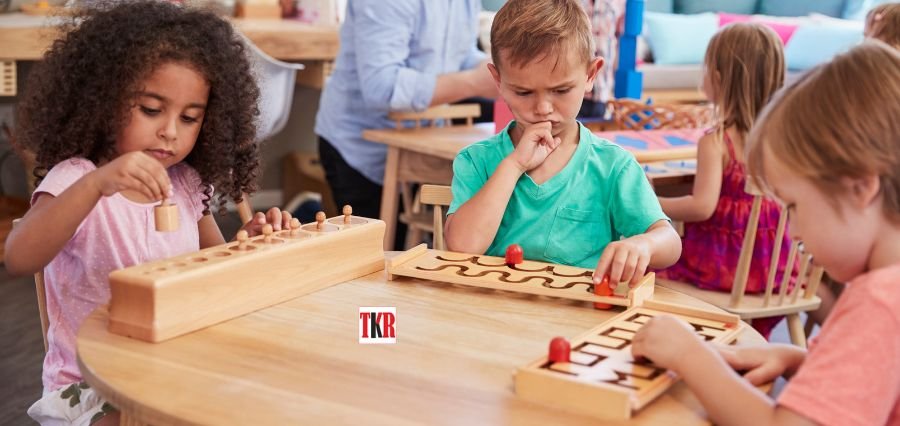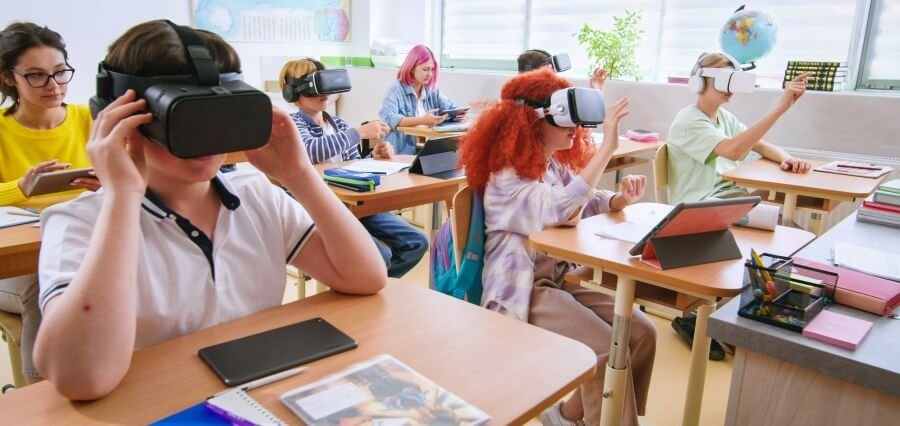What is Montessori?
The Montessori system, constructed by Dr. Maria Montessori in the early years of the 1900s, is an observation-based, child-centered system of learning. In contrast to conventional systems of learning constructed upon a prepared syllabus, Montessori consists of self-activity, handwork, and co-operative games. Children advance at their own pace, selecting exercises suitable to their developmental degree and interest.
This process builds inner motivation and builds self-confidence, responsibility, and independent thinking skill—abilities that are the foundation for future success. The environment, specially arranged with level material suitable to their age, is an invisible teacher that provokes the children to find out, learn, and mold themselves.
Advantages of Montessori Early Childhood Education
1. Montessori cultivates Responsibility and Independence
Autonomy is part of the Montessori schooling. From tying shoelaces to mathematics, kids are provided with freedom to attempt and fail and learn in the attempt. Autonomy is promoted during classwork as well, where kids learn to take responsibility for themselves, keep their area tidy, and respect other people’s space.
It instills responsibility and self-assurance—two qualities that serve young learners’ academic achievement as much as social achievement.
2. Encouraging a Joy in Learning with Montessori
Normal children learn to respond to external pressures such as test results and marks. Montessori classroom children, on the other hand, learn to enjoy learning. In the absence of comparison and predetermined objectives, all the children learn at their own pace, eliminating pressures and encouraging natural curiosity.
Or by independent discovery of geography problems or by science experiments, children learn as individual agents, which sets the stage for a lifetime of inquiry.
3. Balance Created by Montessori Education
Montessori is equal parts intellectual development and emotional, social, and physical development. Manners and grace lessons, group activities, and role playing in resolving conflicts are included in the curriculum to create empathy, self-discipline, and social balance.
Kids in a Montessori environment are strongly emotionally intelligent and more capable of managing complex social relationships.
How Montessori Classrooms Vary
1. Prepared Environment
A Montessori classroom is planned with attention to detail so that children can work independently. Material and furniture are at child height and within range but not directly accessible, retaining independence and accessibility. Order and beauty in the environment positively support responsibility and respect.
2. Mixed-Age Groups
It is the most characteristic aspect of Montessori education that it has a three-year multi-age class. This has the benefit of having the seniors automatically play the role of role models to the juniors. The juniors learn from them, and the seniors reinforce what they have learned by teaching others what they already know—promoting a spirit of cooperation rather than competition.
3. Trained Montessori Guides
In a Montessori classroom, teachers teach less to direct or guide than do traditional teachers. They are there to recognize the individual needs of each student and present proper material when the student is ready. The one-on-one aid enables every pupil’s individual pattern for learning to be initiated and developed.
Myth-Busting Popular Misconceptions about Montessori
1. Montessori is too unstructured
To this presumption, Montessori is an independent method of pedagogical psychology and childhood development. An independence granted in class is on self-respectful terms which are established. All and material are meaningful, and children acquire the power of making good choices.
2. Montessori doesn’t prepare kids for the real world”
In fact, the contrary. Montessori schooling teaches children in practical life skills, time management skills, problem-solving skills, and people-to-people communication skills—practical skills not found in conventional schooling.
3. Montessori is only for wealthy families
Although the majority of private Montessori schools are costly, public and charter schools have even incorporated most of them, thus it is less expensive. And yet, there are even more talented teachers who are unable to share the advantages of this system with poorer children.
Is Montessori for Every Child?
Though Montessori schooling is very worthwhile, it may not be most suitable for all families. Some children do perfectly in very competitive, very structured environments, and some children must be given the space to advance at their own rate. Parents will have to observe and give consideration to what their child can learn, wishes to learn, and needs emotionally in choosing an education.
A tour of a Montessori school, an interview with staff, and even visiting a test day with your child can provide some type of preview as to whether or not the model would work for your child’s personality and development goals.
Conclusion: Implementing the Montessori Model of Learning
While the world is advancing so rapidly, these very skills—creativity, flexibility, teamwork, and emotional intelligence—are the same skills Montessori builds. Emphasizes learning at his own speed, with an interest-driven environment and a respectful climate.
The selection of a suitable course of study is personal, but to so many, Montessori is the name that translates into a proven-and-tried child-directed course of study that prepares a child for school and life.









